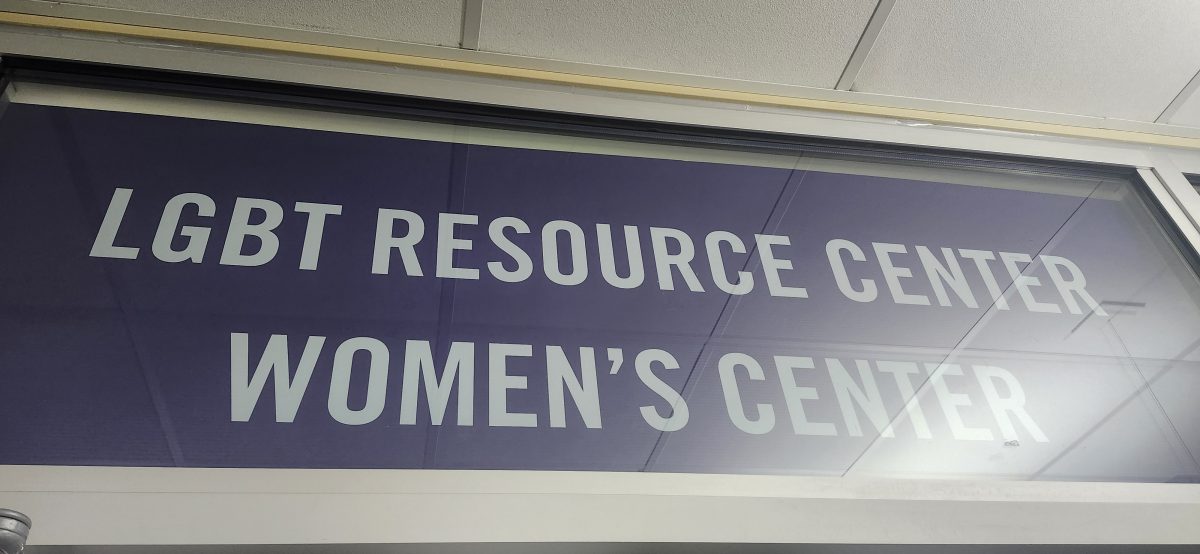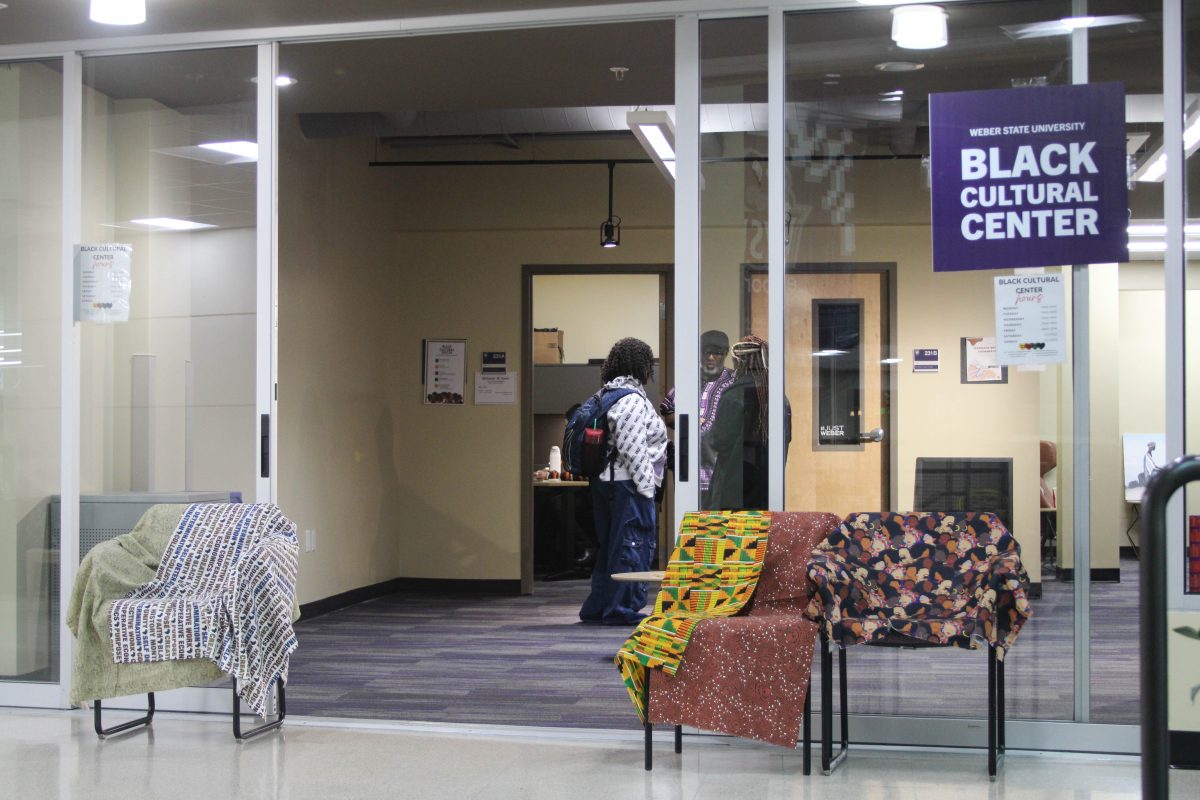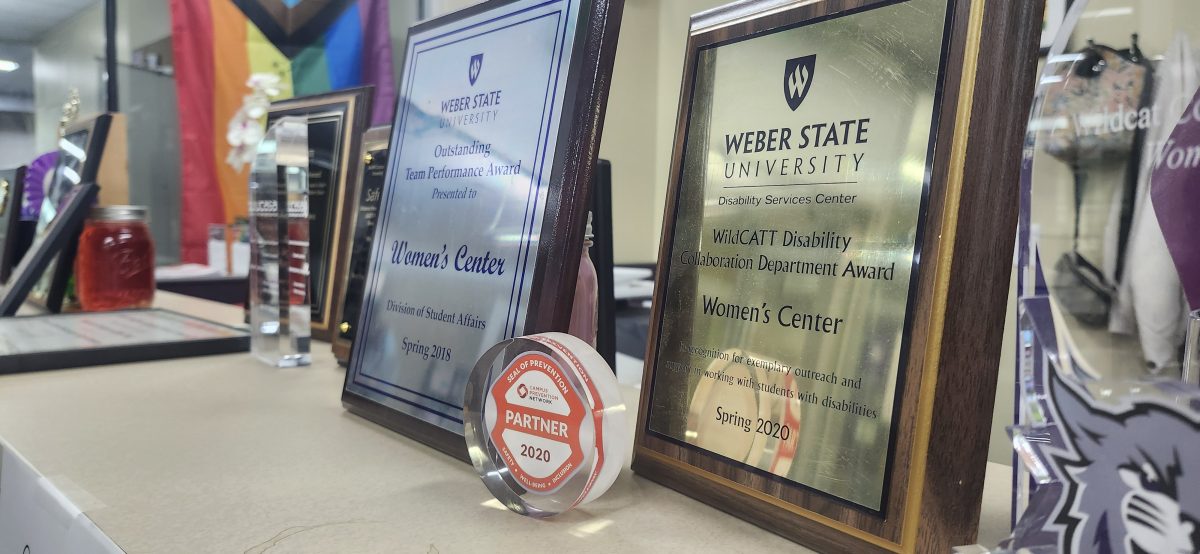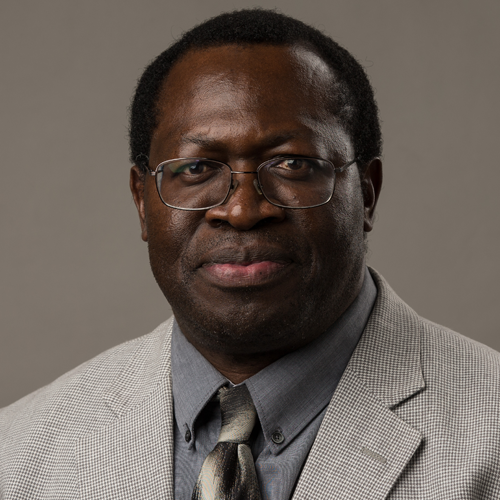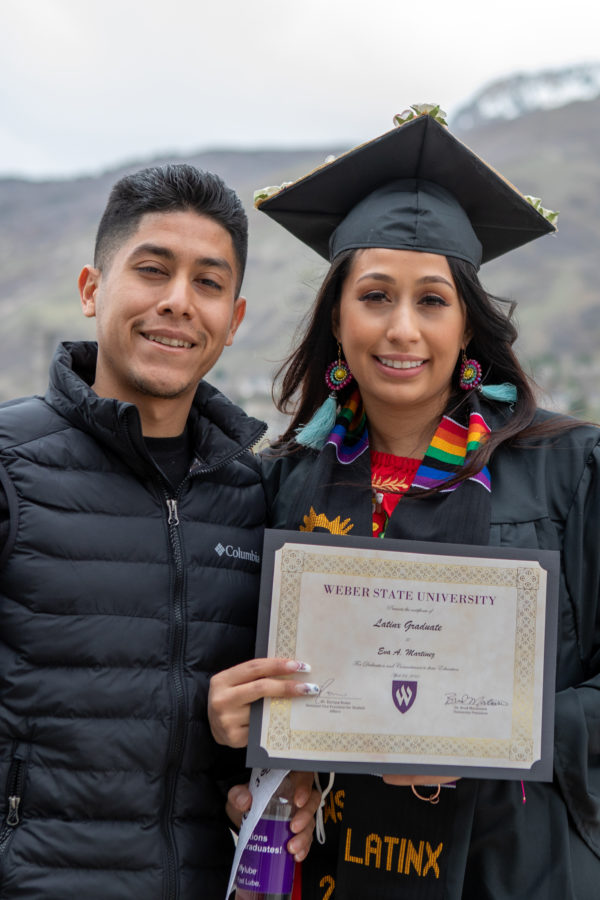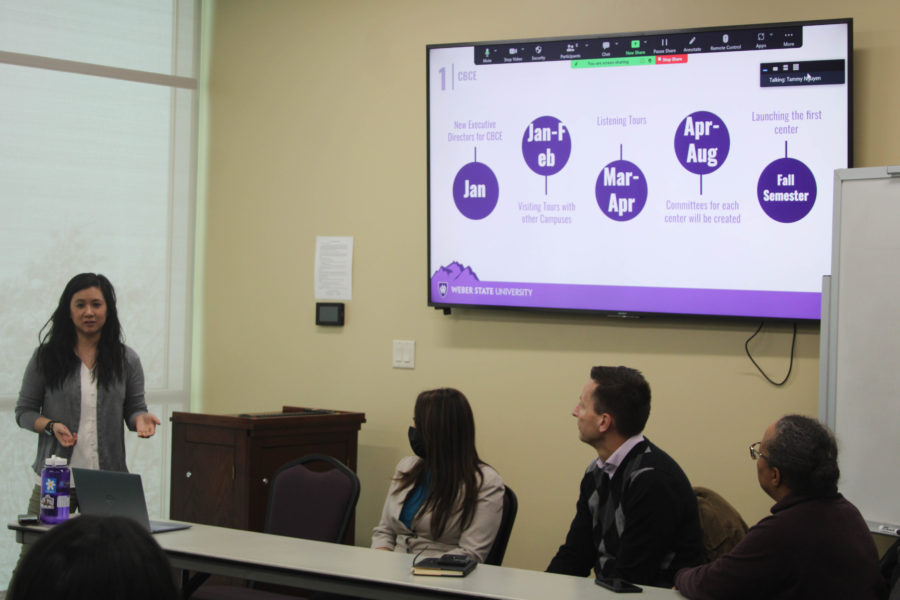In recognition of Native American Heritage Month for the month of November, Weber State University is holding its 16th annual Native Symposium until Nov. 19 with the theme “Illuminating Native Voices.” The event keynote speech from Kim Tallbear was held on Nov. 3.

Tallbear, who was raised in St. Paul, Minnesota, and on the Flandreau Santee Sioux reservation, is a descendant from the Cheyenne and Arapaho tribes of Oklahoma and is also an enrolled member of the Sisseton-Wahpeton Oyate in South Dakota.
Tallbear is currently a professor at the University of Alberta. She also authored the book “Native American DNA: Tribal Belonging and the False Promise of Genetic Science.”

For just over 90 minutes, Tallbear spoke passionately about a range of topics, but spent extra time discussing the word “identity.” She feels that, instead of merely using that word, an important road to travel down is forming relationships and referring to them. While she understands that sometimes that can be difficult, Tallbear believes that past connections help make people who they are.
“Relations aren’t always good relations either, but the bad or not so good relations also are important in making you who you are. So when someone says, ‘Who are you related to?’ I don’t get along with all those relatives but I’ll still say that’s my uncle, that’s my cousin,” Tallbear said. “That’s what makes us who we are, right? Our entanglements historically with those people.”

A strong reason for her dislike of the term “identity” is because she believes it often refers to a person’s self in certain instances, essentially saying that identity isn’t supposed to be used to validate oneself within a shared space more than the next person.
Tallbear gave examples of uses of identity, including “biological essence,” as in DNA, and “cultural essence,” as in activeness in cultural practices.

Overall, Tallbear believes that more people should focus on forming relationships because of their importance in learning a language or participating in events and ceremonies. Relationships help one immerse themselves into communities. She said that merely claiming identity is a poor substitution for forming real relations.









